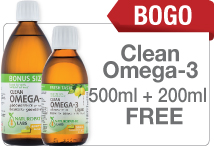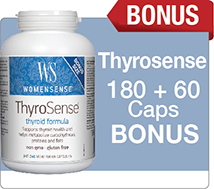Cold Sore Solutions: Supplements & Natural Remedies
Understanding Cold Sores: Causes and Treatments
Herpes simplex viruses 1 and 2 (HSV-1 and HSV-2) are members of the herpetic family - viruses that produce viral infections in humans. HSV-1 and HSV-2 are very common and highly contagious. A cold sore (or fever blister) is an infection caused by the herpes virus 1. Read more >There are no products matching the selection.
Comprehensive Cold Sore Solutions: Supplements & Natural Remedies
Herpes simplex viruses 1 and 2 (HSV-1 and HSV-2) are members of the herpetic family - viruses that produce viral infections in humans. HSV-1 and HSV-2 are very common and highly contagious. A cold sore (or fever blister) is an infection caused by the herpes virus 1. Herpes infections are not curable. After the initial infection, the virus will lay dormant in the nerve tissues of the face (in the case of oral herpes). Occasionally, the virus will reactivate, causing cold sores. Many people will have recurrent symptomatic phases throughout life.
Symptomatic phases or outbreaks involve the appearance of painful blisters or open sores (ulcers) in or around the mouth (cold sores). The symptoms of cold sores are typically described as an initial tingling, itching, and burning, followed by red, swollen, and painful fluid-filled blisters that may eventually break open and ooze. Sores usually last 2 to 3 days until scab forms. Various factors can trigger an outbreak, such as exposure to sunlight, freezing wind, fatigue, a cold or other illness, a weakened immune system, stress overload, and even menstrual/hormonal fluctuations in women. Still, other individuals who contract HSV-1 or HSV-2 do not ever develop symptoms at all.
Effective Cold Sore Treatment: Dietary & Topical Solutions
Because herpetic viruses are for life, no treatments can cure or reverse them. Fortunately, however, many things can be done to help prevent and treat cold sore outbreaks when you first feel them coming on. Dietary tweaks can help, such as cutting down on arginine in the diet, an amino acid abundant in foods like nuts, flax seeds, spinach, chocolate, peas, lentils, whole grains, and coconut. That's because the herpes virus uses arginine to replicate and thrive in the body.
Conversely, increasing lysine intake is essential, an amino acid that naturally helps prevent the herpes virus and cold sores from replicating. Lysine can be taken in supplement form, used as a topical cream, and is abundant in legumes, fish, turkey, chicken, and vegetables. Also, focus on including many immune-boosting foods in your daily meals.
Taking a dietary and topical approach is the best way to manage cold sores long-term. From a topical point of view, besides lysine cream, you can also use colloidal silver, licorice extract, vitamin E oil, and topical ointments that contain vitamin C and zinc. These topicals will both help kill the virus and help heal the sores.
Managing Cold Sores: Prevention & Care Tips
Because they are so highly contagious, those who know they have been infected by the herpes virus or who have symptoms of the virus should avoid all oral contact with others, including not sharing cups, glasses, or cutlery. Also noteworthy is the fact that all forms of herpes viruses are at their most contagious when individuals are symptomatic. This being said both HSV-1 and HSV-2 viruses may be transmissible when they are dormant.
Back to Top ↑





















